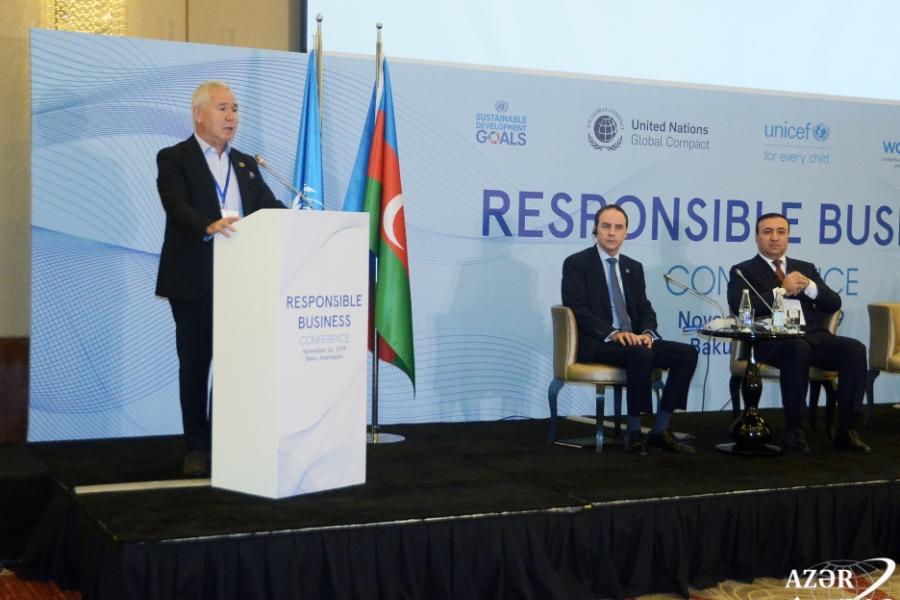Business leaders in Azerbaijan discuss embedding UN Global Compact principles and SDGs into their operations and strategies
26 November 2019
- The role of business in delivering the 2030 Agenda for Sustainable Development was the focus of the UN-organised conference that brought together some 80 participants from the government agencies, businesses, international organisations, civil society and the media.

Co-organised by the UN Resident Coordinator’s Office, UNICEF, UN Global Compact, UN Women and UNDP, the conference underlined the importance of integrating the Ten Principles of the UN Global Compact on human rights, labour, environment, and anti-corruption into business policies and practices.
The event also featured the Children Rights and Business Principles developed by UNICEF, the UN Global Compact and Save the Children towards a new age of corporate respect and support for children’s rights.
“It is now well recognized that the high aspirations of the 2030 Agenda for Sustainable Development depend on leveraging all sources of finance,” said Edward Carwardine, the UN Resident Coordinator a.i. in Azerbaijan.
“Within increasingly complex financing landscapes, different kinds of public and private financing, from domestic and international sources, have important roles to play in achieving sustainable development,” Mr Carwardine added.
The workshop discussions during the conference focused on successful examples of sustainable business practices in different countries and ways for companies to tangibly integrate the SDGs into their financing, operational processes and internal decision-making. Panelists also discussed the role of businesses in supporting women’s empowerment principles – the sets of principles for corporate action to promote gender equality and women’s empowerment.
Launched in 2000 as a special initiative of the UN Secretary-General, the UN Global Compact provides a framework for developing a more sustainable and responsible business. Today, the UN Global Compact is the largest corporate sustainability initiative in the world, with more than 10,000 companies and 3,000 non-business signatories based in over 160 countries, and more than 60 Local Networks.
The Ten Principles of the United Nations Global Compact are derived from the Universal Declaration of Human Rights, the International Labour Organization’s Declaration on Fundamental Principles and Rights at Work, the Rio Declaration on Environment and Development, and the United Nations Convention Against Corruption.





